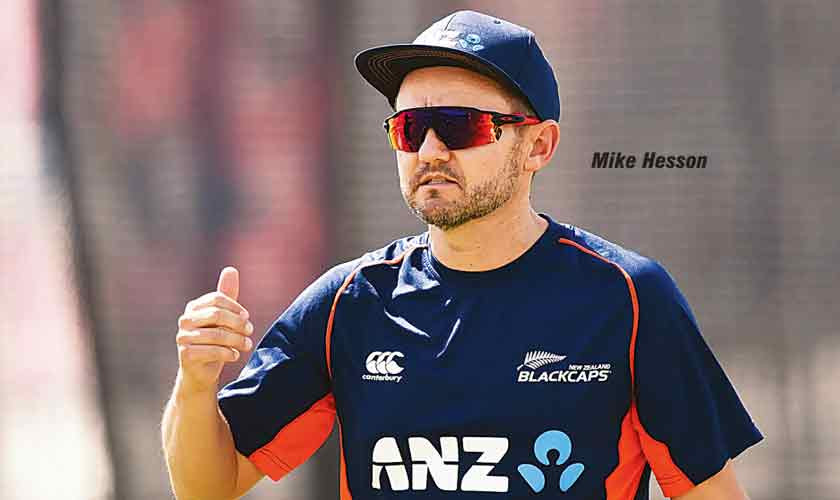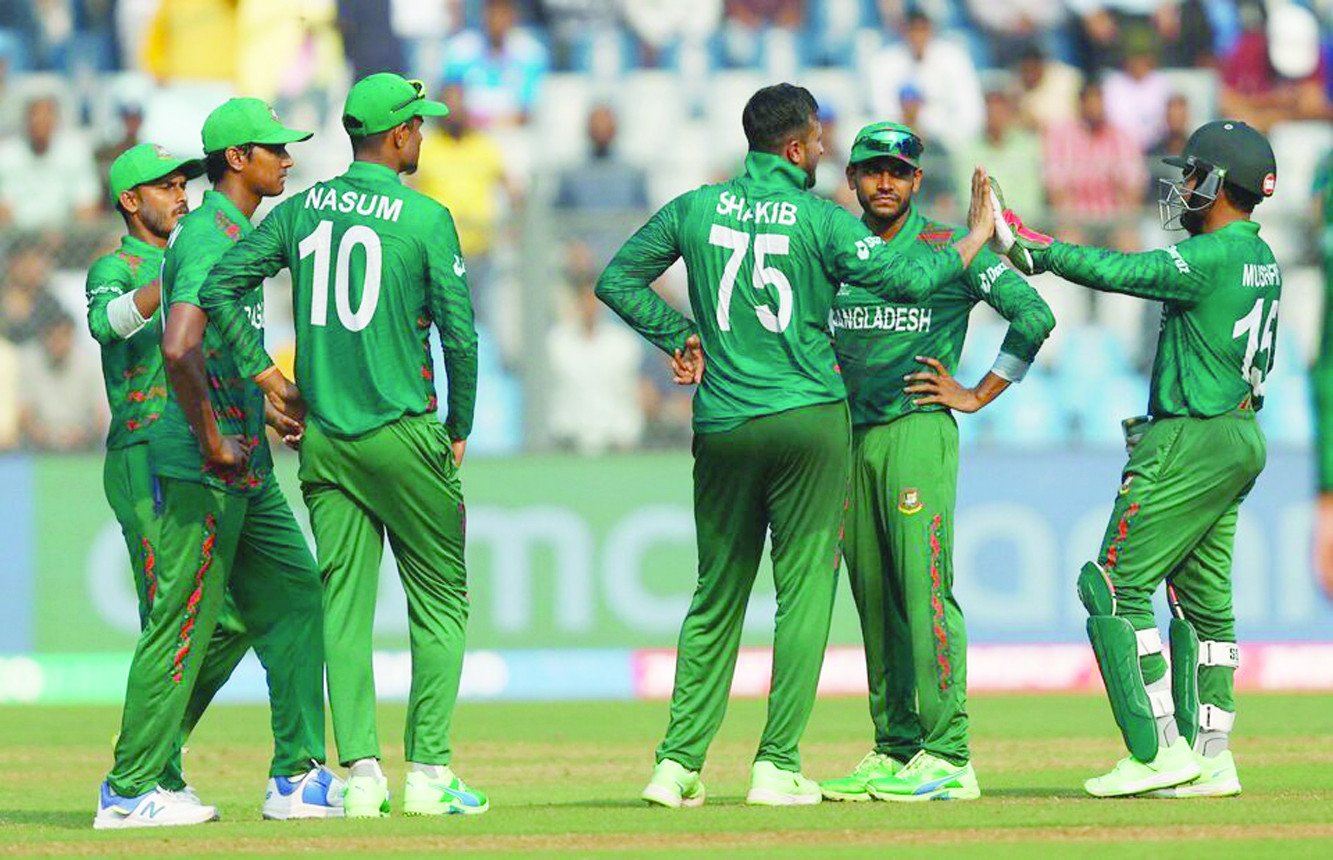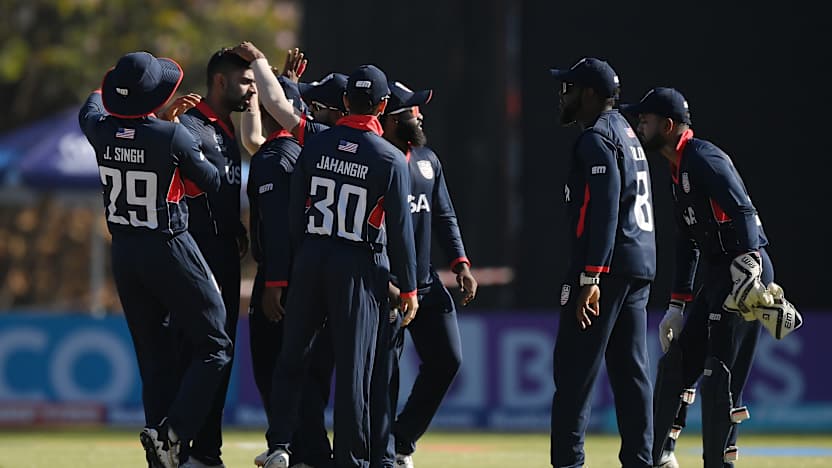Hesson picked to take Pakistan cricket team forward

Pakistan cricket team’s performance on the international stage has often been inconsistent.One crucial factor that can significantly influence the team’s performance is coaching. The introduction of new coaches can provide fresh perspectives, modern techniques, and a revitalised approach to training and match preparation.One of the challenges Pakistan cricket has faced is the lack of depth in the squad. New coach can focus on building a strong bench strength by nurturing young talent and providing opportunities to emerging players. This ensures that the team has a pool of ready-to-perform players who can step up when needed. By investing in the development of young cricketers,coaches can create a sustainable pipeline of talent for the future.Recently Mike Hesson has been announced as head coach of the Pakistan white-ball team. The former New Zealand head coach, who is currently associated with PSL defending champions Islamabad United, will join the PCB from May 26, the day after the conclusion of the PSL 2025. The PCB has not officially revealed the length of Hesson’s contract, but probably hehas been appointed on a two-year deal.Pakistan do not currently have a red-ball coach while Aqib Javed served as interim Test coach for Pakistan’s tour of South Africa and home series against West Indies at the turn of the year after Jason Gillespie quit the role six months into his stint. Pakistan’s next Test series comes at home against South Africa in October.Michael James Hesson replaces Aqib Javed, who was interim head coach for five months, taking over after Gary Kirsten abruptly resigned six months into a two-year contract as head coach.Aqib Javed, meanwhile, has been appointed director of High Performance. He will continue to remain in position as one of five voting members on the PCB selection committee, a position he continued to hold while serving as head coach.The PCB pursued Hesson as their first priority as soon as the position became vacant in April.His first assignment is likely to be a five-match T20I series against Bangladesh at home, should it go ahead according to schedule.Hesson brings a wealth of experience to the role. He served as New Zealand’s head coach from 2012 to 2018, succeeding John Wright. He will join from May 26. His appointment comes ahead of Pakistan’s five-match T20I series against Bangladesh later this month.Mike Hesson, who is the current head coach of Islamabad United, has previously served as the head coach of New Zealand and Kenya, among other international teams.Pakistan, during the past couple of years, has nosedived in top-level international events, including the 2023 Asia Cup, 2023 ODI World Cup 2024 T20 World Cup and the Champions Trophy 2025 in Pakistan.New coaches bring fresh perspectives that can invigorate a team. They come with diverse experiences and insights from different cricketing cultures, which can be instrumental in breaking old patterns and introducing innovative strategies. Modern cricket demands a comprehensive understanding of both traditional techniques and contemporary advancements.New coach often emphasise the psychological aspects of the sport, helping players develop mental toughness, focus, and resilience. This is particularly important for the Pakistan team, which has faced criticism for its inconsistency and vulnerability under pressure.The introduction of new coaches can be a transformative step for the Pakistan cricket team.Fresh perspectives, modern techniques, enhanced skill development, psychological support, tactical acumen, fitness regimes, leadership building, technological integration and strong bench strength are areas where new coaches can make a significant impact.By embracing these changes, Pakistan can harness its immense talent and potential, leading to improved performances and greater success on the international stage.The road to consistency and excellence is challenging, but with the right coaching staff, Pakistan can achieve remarkable progress and reestablish itself as a formidable force in world cricket.Cultural differences also play a vital role. Foreign coaches may struggle to adapt to the unique cricketing culture and the unstable nature of Pakistani cricket. The players’ expectations andattitudes toward training and professionalism vary significantly from what foreign coaches anticipate, leading to friction and eventual resignation.Moreover PCB’s reliance on foreign coaches is seen as a lack of confidence in local talent. While hiring international experts can provide fresh perspectives, it raises concerns about the development and utilisation of local coaching resources. This reliance often leads to criticismfrom former players and commentators, who insist that the PCB should focus on nurturing domestic talent.Several former coaches of the Pakistan cricket team had resigned before completing their tenures, often due to a combination of challenging circumstances. Notable among them is Waqar Younis, who had two stints-his first ending in disappointment after the 2011 World Cup.The pressure from players and management led to a short-lived second tenure, highlighting the inherent instability within the team’s set-up.Before Mike Hesson, several foreign coaches served with Pakistan national team. Richard Pybus, Bob Woolmer, Geoff Lawson, Mickey Arthur, Jason Gillespie, Gary Kirsten are among them.In April last year, the Pakistan Cricket Board (PCB) appointed Gary Kirsten as white-ball head coach and of Jason Gillespie as the red-ball head coach while Azhar Mahmood was confirmed as an assistant coach across all formats.But in December 2024, Jason Gillespie stepped down from his role as Pakistan’s Test team coach and former pacer Aaqib Javed has replaced the Australian. It may be recalled that Gary Kirsten, who joined as the white ball side’s coach along with Gillespie, had resigned before Pakistan left for the series in Australia, Zimbabwe and South Africa. Kirsten had resigned citing differences with the PCB on the matters of authority.Another prominent figure, Mickey Arthur, had a mixed tenure, enjoying initial successes but eventually resigning after the team’s poor performance in the 2019 World Cup. His departure underscored the intense scrutiny foreign coaches face, often exacerbated by high expectationsfrom both the PCB and fans.The Pakistan Cricket Board (PCB) has developed a reputation for frequent changes in coaching staff, a trend that has often hindered the stability and growth of the national team. Both localand foreign coaches have faced abrupt dismissals or opted to resign before completing their contractual terms. This recurring issue stems from a mix of administrative instability, unrealisticexpectations, and lack of long-term planning.One of the primary reasons is the volatile nature of cricket politics in Pakistan. Frequent leadership changes within the PCB itself often lead to new management bringing their own preferred coaching staff, resulting in the premature exit of existing coaches.Additionally performance pressure from media, fans, and internal board politics means coaches are expected to deliver immediate success, often without being given adequate time or resourcesto implement their strategies.Foreign coaches, in particular, face added challenges such as cultural differences, limited control over team selection, and inconsistent communication with PCB authorities. Many report interference in their work and lack of autonomy as key reasons for early resignations.The lack of a professional environment and uncertain job security often leave foreign coaches disillusioned.Furthermore, the absence of a clear roadmap for team development and frequent shifts in cricketing priorities-such as sudden focus switches between formats-add to the confusion.This instability discourages sustained development and disrupts team morale and performance. For Pakistan cricket to progress consistently, the PCB must adopt a more professional, long- term approach to coaching appointments. Stability, transparency in decision-making, andempowering coaches with real authority are crucial. Without these reforms, the revolving door of coaches is likely to continue, ultimately affecting the team’s ability to perform at the highestlevel.In another move, the Pakistan Cricket Board (PCB) has internally finalised plans to dissolve its five-member mentorship panel, marking a significant shift in its domestic cricket strategy, media reports said.The move, directed by PCB Chairman Mohsin Naqvi, will see the board part ways with former national cricketers Misbah-ul-Haq, Waqar Younis, Saqlain Mushtaq, Sarfraz Ahmed and Shoaib Malik.These individuals had been appointed last year as mentors for the Champions Cup under a three-year contract.While no formal announcement has been made, the decision has already been approved at the top level.Shoaib Malik had voluntarily resigned two weeks ago, stepping down ahead of the board’s final call. He announced his decision on his official Instagram page.khurrams87@yahoo.com












